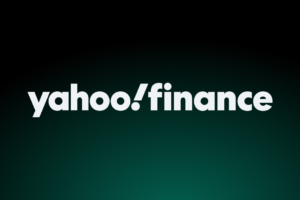
The number of global cases of COVID-19 rose above 4.28 million on Wednesday, as Russia counted another 10,000 infections and Brazil and Mexico suffered their deadliest day since the start of the pandemic.
Brazil reported 881 deaths in a single day, taking the total number of fatalities to 12,400, according to the Guardian. President Jair Bolsonaro has been criticized for repeatedly playing down the dangers of the illness and resisting the kind of restrictions on movement that public-health experts say are essential to contain the spread.
Mexico suffered 353 deaths and confirmed 1,997 new cases in a 24-hour period, disappointing hopes following a lower tally earlier in the week that the illness was coming under control.
Other countries that were first in lifting lockdowns after strict measures succeeded in containing the spread also reported new cases. South Korea is still working to contact people infected at nightclubs in a recent outbreak in the capital Seoul, and the Chinese city of Jilin went into lockdown to contain a fresh cluster of cases, as Agence France-Presse reported.
A leaked White House coronavirus task force report showed that some rural areas of the U.S. are seeing infections spike by more than 1,000% in a week, NBC News reported. President Donald Trump said on Monday that cases are coming down “very rapidly” across the country, but the report shows the top 10 areas recorded surges of 72.4% or more over a seven-day period compared with the week earlier.
A set of tables used by the task force to track the spread shows spikes in Nashville, Tennessee; Des Moines, Iowa; Amarillo, Texas; and — atop the list, with a 650 percent increase — Central City, Kentucky, according to the report. The report has not been released to the public.
The tables show the pandemic is spreading outside of those regions that were early hot spots, including in states that never imposed stay-at-home restrictions or are now pushing to relax them, as Trump has repeatedly urged them to do.
Dr. Anthony Fauci, director of the National Institute of Allergy and Infectious Diseases, warned a Senate committee hearing on Tuesday about the risks and dangers of reopening the U.S. economy too quickly. Fauci also said the number of deaths from the illness is likely higher than the official tally given the shortage of testing and cautioned against assumptions such as believing children are immune.
Latest tallies
There are now 292,619 fatalities from COVID-19, according to data aggregated by Johns Hopkins University. At least 1.5 million people have recovered.
The U.S. has the highest case toll at 1.37 million and the highest death toll at 82,461.
Russia overtook Spain by case numbers following another spike in infections. Russia has 242,271 cases and 2,212 deaths. Spain has 228,030 and 26,920 deaths.
The U.K. has 227,741 cases and 33,263 deaths, the highest death toll in Europe.
Italy has 221,216 cases and 30,911 deaths. France has 178,349 cases and 26,994 deaths.
Brazil has overtaken Germany by case number with 178,214 cases and 12,461 fatalities. Germany has 173,369 cases and 7,780 deaths. Turkey has 141,475 cases and 3,894 deaths. Iran has 112,725 cases and 6,783 deaths. China, where the disease was first reported late last year, has 84,021 cases and 4,637 deaths.
New York remains the U.S. epicenter with 343,705 cases and 27,284 deaths, according to a New York Times tracker.
Four states, Illinois, Florida, Connecticut and Pennsylvania, accounted for most of the rise in U.S. cases overnight, but cases rose in nine states in total, the data shows.
What’s the latest medical news?
Gilead Sciences Inc. GILD, -0.17% named five generic drugmakers that will produce remdesivir, its experimental COVID-19 treatment. The non-exclusive voluntary licensing agreements are with Cipla Ltd. 500087, +0.03%, Ferozsons Laboratories Ltd. FEROZ, +7.49%, Hetero Labs Ltd., Jubilant Life Sciences Ltd. 530019, +4.99%, and Mylan NV MYL, -3.11% to manufacture remdesivir in 127 countries.
The Food and Drug Administration recently granted an emergency authorization to remdesivir in the U.S. as a treatment for severely ill COVID-19 patients; it has also been approved in Japan. Neither nation is part of these manufacturing agreements. China, where the virus was first detected in 2019, also isn’t listed.
Gilead said the licenses will be considered royalty-free until one of two things happens: the World Health Organization lifts its public health emergency of international concern declaration, or another drug or vaccine is approved.
The Federal Emergency Management Agency, or FEMA, canceled a $55.5 million contract for respiratory face masks made with a small Virginia company that had no experience in the mask business and a parent that was in bankruptcy, the Associated Press reported.
The no-bid contract, with Panthera Worldwide LLC, was one of the largest mask orders signed by FMEA as it scrambled to find masks and other personal protective equipment during the pandemic.
A FEMA spokeswoman said the contract for 10 million N95 masks was canceled Tuesday “on the grounds of nondelivery.” FEMA has said it wouldn’t pay Panthera until the masks were delivered.
Panthera’s two owners have been accused of fraud in lawsuits by business associates—which the owners deny—and both had IRS tax liens filed against them in 2018 for alleged unpaid taxes, the Wall Street Journal reported last month.
What’s the economy saying?
The wholesale cost of U.S. goods and services sank 1.3% in April — the largest decline on record — as the coronavirus bore down on the economy and cratered demand, as MarketWatch’s Jeffry Bartash reported.
It was the third straight decline and the biggest since the government reconfigured its wholesale report in 2009 to include services such as finance and health care. Economists polled by MarketWatch had predicted a 0.5% drop.
The rate of wholesale inflation in the past year also turned negative for the first time since 2015, tumbling to 1.2% in April from a small increase in March, the government said Wednesday.
Much of the decline was due to the slump in oil prices amid oversupply as drivers stay home.
“The core PPI will not continue falling at this pace, but the virus will remain a sustained disinflationary shock long after the initial hit from the lockdown has largely reversed,” said chief economist Ian Shepherdson of Pantheon Macroeconomics.
See:Three stunning charts from U.K. GDP — including the spike in toilet paper demand
What are companies saying?
Tesla Inc. TSLA, -2.98% Chief Executive Elon Musk seems to have made progress in his battle with a California county for permission to reopen the company’s plant in Fremont. Alameda County officials said they have reviewed his site-specific plan for safety at the plant and if he complies with added recommendations, and public health indicators remain stable or improve, the plant could reopen as early as next week.
Musk has already reopened the plant and had even tweeted that if local authorities want to arrest someone for breaking lockdown rules, it should be him. The plant, which employs 10,000 workers, has been closed since March 23. Musk has complained that the county was not moving as fast as the state in easing restrictions.
See:Tesla’s California plant reopens despite shutdown order, Elon Musk dares county to arrest him
Uber Technologies Inc.’s UBER, -3.17% merger talks with Grubhub Inc. GRUB, -5.57% were called a “new low in pandemic profiteering” by a member of Congress on Tuesday, and that’s just one issue that could thwart a potential combination of the food-delivery companies, as MarketWatch’s Therese Poletti writes.
Just hours after a Wall Street Journal report revealed the talks, Rep. David Cicilline, a Democrat from Rhode Island, slammed the deal, which has support on Wall Street.
“Uber is a notoriously predatory company that has long denied its drivers a living wage. Its attempt to acquire Grubhub — which has a history of exploiting local restaurants through deceptive tactics and extortionate fees — marks a new low in pandemic profiteering,”Cicilline, who is also House antitrust subcommittee chairman, said in a statement.
Elsewhere, there was a flurry of bond offerings announced early Wednesday, as companies move to bolster liquidity and conserve cash during the pandemic.
Here are the latest things companies have said about COVID-19:
• Boyd Gaming Corp. BYD, -9.22% is offering $500 million of senior notes that mature in 2025 in a private placement. The Las Vegas-based company will use the proceeds for general corporate purposes, including working capital. Many U.S. companies are currently issuing bonds or tapping credit lines to bolster liquidity during the pandemic.
• Becton Dickinson & Co. BDX, -0.29% is offering $1.5 billion in 10-year and 30-year notes, as the medical technology company looks to repay $1 billion in debt due this year. The offerings include $750 million in 2.823% notes due 2030 and $750 million in 3.794% notes due 2050. That compares with the yield on the 10-year Treasury note of 0.678% and the yield on the 30-year Treasury bond of 1.381%. The company said it expects to use the proceeds plus cash on hand to repay the $1 billion in 2.404% notes due 2020, and to fund a partial redemption of its 3.250% notes, also due this year.
• The Container Store Group Inc. TCS, -20.61% expects fiscal fourth-quarter sales of $241.3 million, down 4.7% from a year ago, mostly because of the pandemic. Same-store sales are expected to fall 3.6%. The quarter was tracking the company’s “expectations” until the last few weeks of the period, when store closures and other business disruption started. Analysts polled by FactSet expect fourth-quarter sales around $250 million. The retailer is expected to report a complete fourth-quarter picture next week. The Container Store had a cash balance of about $67.8 million at the end of March. Total debt, net of deferred financing costs, was $333.5 million, and liquidity was $96.4 million at the end of the quarter.
• DraftKings Inc. DKNG, -0.53% shares fallied after reports emerged that famed investor George Soros owns 2.7 million shares of the Class A stock through an investment vehicle called Quantum Partners. DraftKings disclosed the holding in a filing with the Securities and Exchange Commission last week. Other investors include Walt Disney Co. DIS, -2.43%, which operates the sports channel EPSN, and the National Hockey League.
• Networking company Infinera Corp. INFN, -23.27% reported larger quarterly losses than expected amid the pandemic. Infinera, which mostly sells networking equipment to telecommunications firms, reported a first-quarter loss of $99.3 million, or 55 cents a share, on sales of $330.3 million, up from $292.7 million a year ago. After removing some costs, including some related to COVID-19, the company claimed a loss of 27 cents a share, worse than a loss of 23 cents a share in the same quarter a year ago. Analysts had projected an adjusted loss of 18 cents a share on sales of $318.3 million, after Infinera guided for adjusted losses of 15 cents to 21 cents a share. Infinera guided for second-quarter sales of $309 million to $329 million with negative operating margins.
• Live Nation Entertainment Inc. LYV, -3.19% is planning to issue $800 million in senior secured notes that mature in 2027 in a private deal. The ticketing company said it would use the proceeds for general corporate purposes.
• Plug Power Inc. PLUG, -2.80% is offering $200 million in convertible senior notes that mature in 2025 in a private offering. Proceeds of the deal will be used to fund capped call transactions that seek to minimize dilution once the bonds convert into stock, and for “eligible green projects,” the maker of hydrogen and fuel-cell technology said. The notes will be convertible into cash, common stock or a combination, at Plug Power’s discretion.
• Potbelly Corp. PBPB, -19.66% reported a wider quarterly loss and sales that were below Wall Street expectations even as its delivery, drive-through, and takeout sales rose 45% in April. “Simply put, the pandemic arrested the strong turnaround momentum we initiated in Q4 last year,” Chief Executive Alan Johnson said. “We understand challenges will persist over the next several months, and are taking the necessary steps to support and fortify our business.” Potbelly drew down its $40 million credit facility and cut costs and expenses, it said. It is negotiating with landlords and considering closing up to 100 shops, the company said.
• Royal Caribbean Cruises Ltd. RCL, -7.84% launched a private offering of $3.3 billion in senior secured notes due 2023 and 2025. The notes will be backed by 28 of its vessels and intellectual property. The company expects to use the proceeds from the offering to repay its $2.35 billion, 364-day term loan agreement, that was disclosed on March 23. The remainder of the proceeds is expected to be used for general corporate purposes, which could include repayment of other debt.
• Twitter Inc.’s TWTR, -2.53% nearly 5,000 employees may work from home as long as they wish as the San Francisco-based company re-engineers operations in the age of COVID-19. Twitter Chief Executive Jack Dorsey told employees in a note Tuesday that most of them would be allowed to continue to work from home even after the global health crisis passes. Those who return to the office will not be allowed to until at least September, and all travel will be severely cut back, Dorsey added.
• Uber Technologies Inc. and Grubhub Inc. cannot agree on a price that the ride-hailing company would pay to acquire the food delivery business, according to a CNBC report. CNBC said that Uber had rejected an all-stock offer. Earlier Tuesday, The Wall Street Journal reported that Grubhub proposed a deal in which its investors would have received 2.15 Uber shares for every share of Grubhub, valuing the company at roughly $6.25 billion. The Journal also reported that Uber’s board was expected to review the proposal in the “coming days.”
• Walt Disney Co. disclosed the maturities of a six-part bond deal the media and theme park company announced plans for earlier this week|, with maturities ranging from six years to 40 years. The $11 billion offering includes $1.5 billion, 1.75% notes due 2026; $1 billion, 2.20% notes due 2028; $2.5 billion, 2.65% notes due 2031; $1.75 billion, 3.50% notes due 2040; $2.75 billion, 3.60% notes due 2051; and $1.5 billion, 3.80% notes due 2060. Disney’s long-term credit is rated A- at S&P Global Ratings. Disney plans to use the proceeds from the debt offering for general corporate purposes, including the repayment of debt due June 2020.











